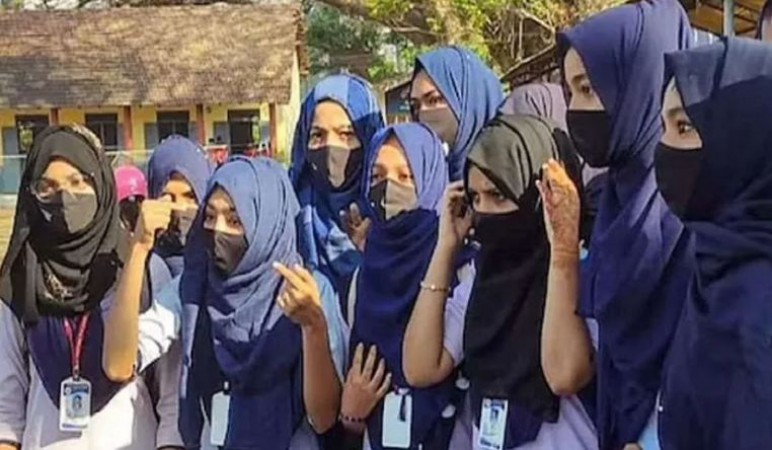
Bangalore: Petitions have been filed in the High Court over the hijab dispute that began in Karnataka. The petitions have challenged the ban on hijab in educational institutions. A three-judge bench of Karnataka High Court comprising Chief Justice Rituraj Awasthi, Justice Krishna S Dixit and Justice JM Khaji is hearing the matter.
During the hearing, the court made a special appeal to the media, saying that we urge the media to be more responsible. We are not against the media, our only urge is to be responsible. Advocate Subhash Jha said he urged that all parties should limit their submissions in the rule book and not give a communal shade to the case. Senior advocate Devdutt Kamat, who initiated the petitioner's arguments, said the government's order was used without fulfilling the requirements of the law. These are at the core of Article 25 and are not legally binding.
At the same time, the court questioned senior advocate Devdutt Kamat, appearing for the petitioner, what is the absolute right given to citizens under Article 25 (religious freedom). Whether it has any limits or not. The court asked Kamat to highlight what a 'public order' is. At the same time, Devdutt Kamat told the court what is the public order. However, the court asked Kamat to come directly to the issue of whether it is a public order issue or not. We are only trying to understand whether the government has repealed Article 25 by its government order.
During the hearing, senior advocate Kamat told the Karnataka High Court that the government order says that wearing a hijab is not protected by Article 25. The government order says that the college development committee should be left to determine whether it will be part of the dress or not. He further said that allowing the college development committee to take a decision on whether to allow students to wear hijab or not is completely illegal. The lawyer asked whether a college development committee comprising an MLA and some subordinates could decide to exercise fundamental freedoms. How can a statutory authority be made the custodian of our fundamental rights?
Crude oil prices 'boil' as tensions between Russia and Ukraine rise.